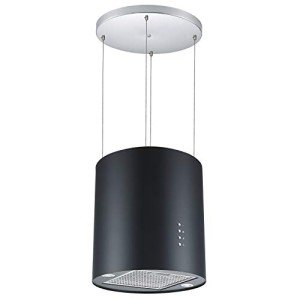The 10 Most Scariest Things About Island Vent Hood
페이지 정보
작성자 Bernardo 댓글 0건 조회 57회 작성일 25-05-20 03:05본문
The Island Vent Hood: A Comprehensive Guide to Choosing and Installing the Perfect Kitchen Feature
In contemporary kitchen style, the island vent hood has become an important focal point, perfectly integrating functionality with visual appeal. With the rise of open-concept living spaces, where cooking areas are incorporated with dining and living locations, the importance of a well-designed ventilation system has become critical. This article explores what an island vent hood is, the different types offered, crucial functions to consider, setup suggestions, and FAQs surrounding this vital kitchen component.
What is an Island Vent Hood?
An island vent hood is a kitchen ventilation system created to be set up above an island cooktop or range. Unlike standard wall-mounted hoods, island hoods are suspended from the ceiling, providing a clear view of the cooking location while effectively removing smoke, steam, and odors from the kitchen. This makes island hoods an attractive option for open layouts while ensuring a tidy and comfortable cooking environment.
Kinds Of Island Vent Hoods
When selecting an island vent hood, it is vital to comprehend the different types available in the market. Here are the primary classifications:
| Type | Description |
|---|---|
| Ducted | Ventilation is directed outside, providing the very best air quality by expelling air and smells. |
| Ductless | Uses filters to clean the air and recirculate it back into the kitchen; much easier to install. |
| Convertible | Can operate in both ducted and ductless modes, offering flexibility in installation. |
| Under-Cabinet | Mounted under cabinetry; generally lower output, appropriate for smaller sized kitchen designs. |
Key Features to Consider
Picking the right island vent hood includes several important factors. Here are the necessary functions to think about:

- Size: The hood should be at least as broad as the cooktop. Preferably, it ought to extend 6 inches on either side for optimal performance.
- CFM Rating: The Cubic Feet per Minute (CFM) score shows the hood's ventilation power. Greater CFM is necessary for heavy cooking, while lower CFM may suffice for lighter use.
- Sound Level: Measured in sones, a lower sone ranking suggests a quieter operation. A peaceful fan is especially important in open-concept areas.
- Lighting: Many island hoods come geared up with integrated lighting. LED lights are popular for their energy performance and durability.
- Style: Island vent hoods can be found in different styles, consisting of modern, traditional, and commercial. Select a hood that complements the general kitchen visual.
Installation Tips
Installing an island kitchen extractor hoods vent extractor hood for island can be a complicated process. Here are some vital pointers to help with the installation:
- Check local codes and guidelines to ensure compliance with setup height and electrical requirements.
- Identify the hood's height: The top of the hood ought to be 30 to 36 inches above the cooking surface area, depending upon the manufacturer's suggestions.
- Secure the mounting bracket: Ensure that the mounting bracket is appropriately anchored to the ceiling to support the weight of the hood and motors.
- Ductwork considerations: If using a ducted system, guarantee correct duct size and design for optimum air flow. Avoid sharp bends in ducting, which can impede air motion.
- Electrical setup: Ensure that the electrical connections meet your hood's power requirements, and consider employing a licensed electrician for complex setups.
Cost Considerations
The cost of an island vent hood can range significantly depending upon functions, products, and brand name. Below is a breakdown of potential costs related to acquiring and installing these hoods:
| Cost Element | Approximated Range |
|---|---|
| Fundamental Models | ₤ 300 - ₤ 600 |
| Mid-range Models | ₤ 600 - ₤ 1,200 |
| High-End Models | ₤ 1,200 - ₤ 3,000+ |
| Installation Costs | ₤ 200 - ₤ 500 |
Regularly Asked Questions
1. How frequently need to I clean my island vent hood?Regular cleansing is recommended, with deep cleansing a minimum of once a month, especially if you cook frequently. 2. Can I set up an island cooker hood uk vent
hood myself?While it is possible, professional
setup is suggested for security and optimal performance, especially with ductwork and electrical connections. 3. Are ductless island hoods effective?Ductless hoods can successfully filter
smoke and smells, however they might not be as powerful as ducted designs. They need routine filter replacements and maintenance. 4. What sort of maintenance does an island vent hood require?Regular cleansing of filters, lights, and hoods, together with looking for any wear and tear on motors or ductwork is important for preserving efficiency
. 5. What type of filters should I use?Most island cooker extractor hood vent hoods use aluminum or charcoal filters. Aluminum filters are recyclable, while charcoal filters require to be replaced
regularly. The island vent hood is an important part of a modern kitchen, island vent hood providing fatigue of unwanted odors and making a striking style statement. Picking the ideal type, understanding vital
features, and sticking to proper setup strategies will guarantee optimal performance and longevity of this kitchen device. Whether you are a seasoned chef or an occasional home cook, the best island vent hood can considerably enhance your cooking experience. By following the guidelines and factors to consider laid out in this short article, house owners can make educated choices and enjoy a cleaner and more enjoyable cooking environment.
- 이전글A Delightful Rant About Best Triple Sleeper Bunk Beds 25.05.20
- 다음글The Hidden Secrets Of Built-In Microwaves 25.05.20
댓글목록
등록된 댓글이 없습니다.


